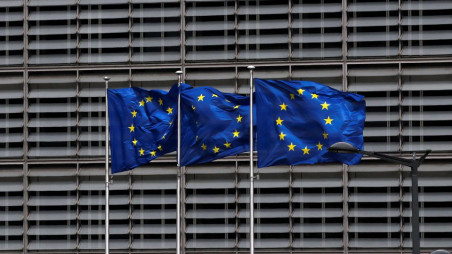EU plans 120 billion euro economic boost by easing insurance rules
Britain, which is home to the world's biggest commercial insurance market and left the EU last December, has also begun reviewing the capital rules known as Solvency II. It will scrutinise how changes by Brussels could affect London's competitiveness

The European Union proposed changing the bloc's capital rules for insurers on Wednesday to release 120 billion euros ($141 billion) for repairing an economy hit by Covid and to meet climate goals without eroding policyholder protection.
Britain, which is home to the world's biggest commercial insurance market and left the EU last December, has also begun reviewing the capital rules known as Solvency II. It will scrutinise how changes by Brussels could affect London's competitiveness.
The EU also proposed a framework for the swift and orderly closure of insurers in trouble to avoid destabilising the financial system, mirroring a similar move with banks following the global financial crisis that led to taxpayer bailouts.
Anticipating concerns it was rowing back on rules, the EU said Solvency II would remain the "gold standard".
"This is not a revolutionary change, these are gradual but important changes," EU financial services commissioner Mairead McGuinness told reporters.
"This isn't a gift to the insurance industry."
The Solvency II capital rules were introduced for the 10.4 trillion euro sector in 2016, and are applied by insurers like Allianz, Generali and AXA.
They were due a routine review but the need to rebuild an economy hit by the pandemic and invest in green infrastructure to meet net zero carbon targets added a sense of urgency.
The persistence of very low interest rates undermining the business models of insurers also needed addressing, along with the need to better tailor Solvency II rules to smaller, less risky insurers.
'Wrong direction'
The rule changes, which need approval from EU states and the European Parliament, would release 90 billion euros in the short term and a further 30 billion euros in the long term.
Sven Giegold, a German Green Party member in the European Parliament, said the proposals go in the "wrong direction" by ignoring advice from EU regulators, and maintain or even expand "lobby-driven" exceptions to the rules.
Olav Jones, deputy director general for Insurance Europe, an industry body, said he welcomed EU acknowledgement of the need to reduce capital requirements, but only a "significant and permanent" cut in capital would allow insurers to increase support for the economy and regain global competitiveness.
Brussels proposed easing the impact of the so-called volatility adjustment, which mitigates the impact of short-term market moves on insurer solvency.
It also wants to make it easier for insurers to benefit from preferential capital treatment worth around 10.5 billion euros from investing in long-term assets to green the economy.
The risk margin or money needed to transfer the business to another undertaking in a crisis, will also be reduced.
EU insurance watchdog EIOPA will conduct centralised climate stress tests of the sector, with insurers also required to conduct long-term climate scenario analysis, it said.
The Commission decided not to propose an EU-wide harmonisation of national insurance guarantee schemes, saying it could entail significant costs for insurers and there was a need to focus on economic recovery.
($1 = 0.8524 euros)



 Keep updated, follow The Business Standard's Google news channel
Keep updated, follow The Business Standard's Google news channel















